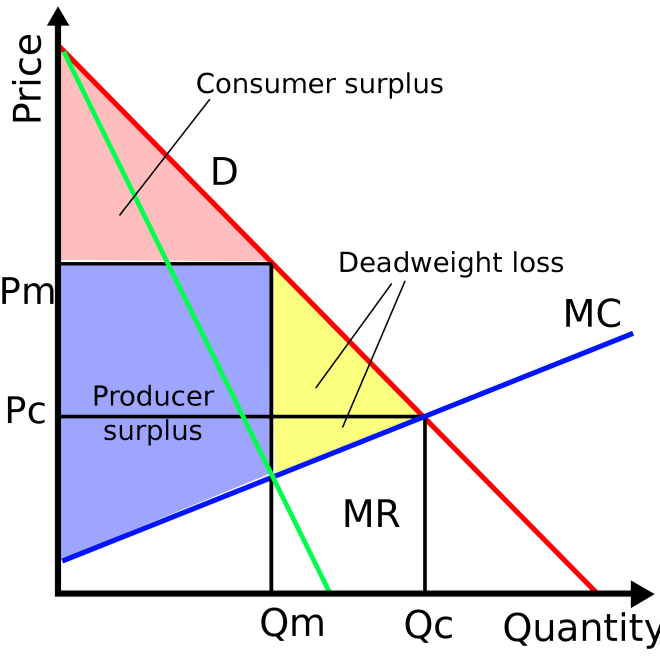Why do we even have a minimum wage.. what is it for?
I don't think you will have any chance of figuring out why we have it and what it's for until you try to come to grips with the question I asked you at the beginning. What would you propose to do about people who don't have the ability to make an employer better off by whatever number of dollars per hour we set the minimum wage at? Are those people going to get minimally acceptable life opportunities too?
<Crickets>
Nobody seems to be willing to answer my question; looks like I'll have to answer it myself.
DBT said:
There has to be a set minimum wage because those in that position are not in a strong bargaining position regardless whether a business can afford to pay double or triples the minimum, many employers only pay what they can get away with, hence workers with little bargaining power are vulnerable to exploitation. It happens.
That's where unions can come into play.
Bingo. In theory there's no point in having a minimum wage law in the first place, because if unskilled workers want to be paid more than the market wage, say, paid $10/hr, then they can all simply refuse to work for less than that. They can choose their own minimum wage at whatever level they please, and nobody can make them work for less. Economically, a minimum wage is the same thing as a union of all the unskilled laborers. So asking what a minimum wage is for just leads us to the question, what's a union for?
Here's what a union is for:
The vertical axis is the wage. The horizontal axis is the amount purchased. The blue line is the supply curve -- the amount producers of labor, i.e., workers, are collectively willing to deliver at various prices. The red line is the demand curve -- the amount consumers of labor, i.e., employers, are collectively willing to buy at various prices. When the employers compete with one another and the workers compete with one another, the price and quantity tend to settle at the point where the two lines cross. When that happens, the net benefit the employers get from buying the labor is the triangular area between the red line and the black line marked "Pc" (competitive price). The net benefit the workers get from selling the labor is the triangular area between the blue line and the black line.
But the workers don't have to compete with each other. They can choose to bargain collectively instead of individually, acting as a monopoly on selling unskilled labor. If they do that, then they can collectively get a bigger benefit. They can agree among themselves to set the price of labor to "Pm" (monopoly price) instead of "Pc". When they do that, the employers reduce their labor purchase from "Qc" to "Qm". This means the total benefit the workers collectively get changes to the entire blue region in the diagram. The workers lose the lower yellow triangular area but they gain the blue rectangular area between the black lines marked "Pm" and "Pc", which is a bigger area. (The employers collectively lose that rectangle, and also lose the upper yellow triangular area, so this is pure bad news for the employers, but so what? It's not up to them whether the workers unionize.)
So far, so good. So what's the problem? Why do so many unskilled workers think they need a minimum wage, and, more generally, why is union membership down to 11%? The problem is that lower yellow triangle. The workers collectively had to give that up in order to get the bigger blue rectangle. Unfortunately, the specific workers giving up the lower yellow triangle and the specific workers receiving the bigger blue rectangle
are different workers.
So when the workers try to get the monopoly price instead of the competitive price, that sets up a conflict of interest between the yellow workers and the blue workers. In effect, the blue workers are urging the yellow workers to sacrifice what they have so that the blue workers will be better off. That's a tough sell. Some of the yellow workers won't go for that. Solidarity and class consciousness and community shaming only carry so much weight against a drop in standard of living, especially when you're expected to take a personal hit for the team but your teammates won't be taking the same personal hit for you. That's one reason unions have historically had such a hard time holding their strikes together until management caves.
And this brings us, finally, the answer to our original question. Why do we even have a minimum wage.. what is it for? In theory there's no point in having a minimum wage law in the first place because unskilled workers can all simply refuse to work for less than that; but in practice they won't. So no, the purpose of a minimum wage is not to guarantee certain "minimally acceptable" life opportunities. No, it's not to ensure everyone is paid fairly. The purpose of a minimum wage is to stop the scabs from crossing the picket lines.

